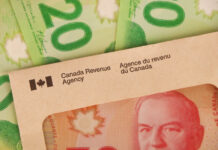Starting a business is intimidating in general. It may be even more intimidating to start a business during a global pandemic and economic crisis. Many small business owners may be deterred from forming a business right now for a multitude of reasons, but the main reason may be due to financial constraints and the burden it may cause.
Small businesses are still alive and trying to fight hard, but many have taken a sizable hit to their sales and have not yet recovered from the economic downturn. Because of that, having enough funding to launch your home business and sustain it is of utmost importance right now. But how much does starting a home-based business actually cost?
We break down the costs of starting a home-based business and other financial considerations to keep in mind during this season.
How Much Does a Home-Based Business Cost?
It’s important to be strategic about the type of home business you are thinking about launching. Some businesses are actually thriving during this current pandemic and economic climate, such as delivery services, virtual assistants, online tutors, career coaches and healthcare services and products. Those types of businesses may make more financial sense to launch during this time. There are many other home business ideas with low startup costs that may be wise to start as well.
According to the U.S. Small Business Administration (SBA), it costs about $3,000 to start a microbusiness, with most home-based businesses costing $2,000 to $5,000. These costs can higher or lower, depending on the type of home business you start.
For example, if you’re starting a freelance writing business out of your home, you won’t have any inventory costs — you can likely get by with a reliable computer, fast internet and a desk. If you’re wanting to create and sell custom face masks at home, you’ll need materials, a robust website, space to store your products and shipping supplies. Some business ideas may only cost you $500 or less to start.
Having a home-based business can help you save significantly in certain areas too. For example, working out of your home can eliminate a monthly rent or mortgage payment, utility costs and office furniture costs; using your own technology can save you on buying a computer or printer; and keeping products you sell at your home can save you on warehouse and storage costs.
Here are some potential costs to keep in mind for a home-based business:
- Purchasing product or equipment
- Hiring employees or consultants to help you launch your business or develop your product
- Lawyer fees
- Technology
- Web hosting and other website costs
- Basic supplies
- Insurance, license or permit fees
- Advertising or marketing
- Cost to incorporate your business
Some of your expenses will be one-time costs, while others will be ongoing expenses. You should spend some time laying out all costs you can think of and note whether they are recurring or one-time. This will help you understand how much profit you’ll need to make in order to be sustainable in the short term and long term. As a good rule of thumb, you should have enough money saved up to keep you afloat for at least one month if you do not make a profit from your business initially.
The SBA offers a startup cost worksheet to help you accurately estimate the costs you will incur to start your home-based business.
How Much Can You Typically Receive in Loans?
There are various ways you can get funding for your small business, including loans, investment capital, grants, disaster relief and surety bonds. You can even use your unemployment benefits to start a business too, if applicable.
According to the SBA website, loans guaranteed by the SBA range from small to large and can be used for most business purposes, including long-term fixed assets and operating capital. Some loan programs set restrictions on how you can use the funds, so check with an SBA-approved lender when requesting a loan.
The average SBA loan was $417,314, and the average SBA microloan was $13,000. The average SBA loan amount from large national banks was $59,000 and $165,000 from small banks, according to Value Penguin.
How Much Can You Make as a Business Owner?
Many entrepreneurs form their own business since they desire to be their own boss. While being your own boss definitely comes with many perks, one potential downfall is how much you may make. That can be a huge misconception new business owners have when first starting out.
In fact, 86.3 percent of business owners take less than $100,000 a year for a salary, according to Fundera. The study also revealed that 30.07 percent of the small business owners don’t even take a salary.
For many, that salary may make it difficult to pay rent or a mortgage, support their family and pay bills. This is something to keep in mind as you launch your business. Of course, depending on how successful your business is, you may be able to take home more pay. Perhaps that will continue to motivate you to scale your business as efficiently and quickly as possible.
While starting a home-based business can be more financially friendly than other types of businesses, it still comes with a price tag. Being in great financial shape before formally launching your business will be the key to your small business success.
Find a Home-Based Business to Start-Up >>> Hundreds of Business Listings.















































Look on coupon code websites for discount codes. For instance, sites like mysavinghub. com offer promo codes.